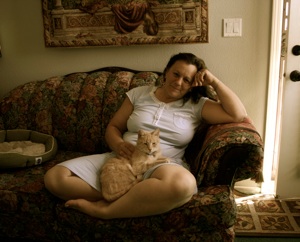I am getting a lot of questions regarding my wife, “Where is your wife? You came to Europe and you did not bring your wife”? She lets you do that? I tell people that my wife does not like to travel, but most people simply can not understand. People just assume that everyone should like to travel, but I know that my wife would hate me if I put her through this. Yes, to me it is exciting to enter an airport and be with the traveling crowds meeting people from all of the world, but traveling is not for everyone. Much of travel is plain hard work and at this time of the year the heat and humidity are especially hellish. I am having a great time, but I know my wife would not appreciate this at all. It would be torture for her. So I thank her for letting me travel to my heart’s content and not holding me back just because she does not enjoy travel.
I have observed that every trip is unique and seems to have its own particular character, and yet, I see a common set of stages that affect every trip. About a month before a trip I find myself becoming less interested in my routine life more focused on being away. I am here, but I am not here. In fact, the closer I get to the actual trip the more I have already left in my mind. This is the stage of winding down, packing, and psyching up. Two weeks before the trip I create a “travel space” in my room and spread my luggage across the floor. I have a check list of items that I may need and I spend a little time every day preparing. My business and domestic schedules all must be arranged. I make a trip to the dentist and to the eye doctor. I buy clothes and other supplies. I make sure I have all my medical supplies and toiletries. What I have found, interestingly, is that I have created a live style that is “ready to go” at any time. I have arranged my business so it is sufficiently staffed. I can disappear at anytime. My personal computer is ideal for travel, small and powerful, a real man’s toy. My cell phone is international. My household finances are on auto pay, my passport is always up to date and credit cards are international ready. At any moment I could leave. I have designed the perfect mobile lifestyle. I also find that I do not like to tell people where I am going. It makes them envious, so I tend to downplay where I am going. “Oh, just a short trip to see my parents in Toronto,” when in fact I am leaving for Rome. I find it impossible to just tell people I am leaving on a vacation at the other end of the universe. For one, the envy factor disturbs me and second perhaps I do not think I am worthy of a travel lifestyle. Being a priest and dealing with perceived wealth factors is a problem. You take exotic vacations? You drive a luxury car? So a trip to Paris, for example, must always include a purpose, “I am doing a wedding in Normandy.” Rome is “research for a new book.”
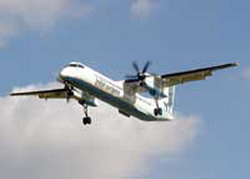 Then there is the actual leaving home phase, which for me, involves driving to the airport and actually getting on a plane. I feel anxiety and all sorts of ideas go through my mind that involve personal safety. Will I crash driving to the airport, will there be a valet for my car, will there be an earthquake while I am gone and will the parking garage collapse on my car, will the plane leave on time, will it crash, is my destination going to be safe, will the hotel loose my booking? And, of course, the big daddy of all questions, will my plane be targeted for a mid atlantic terrorist’s explosion. I should have paid more attention during my red cross swimming classes. Finally, the planes leaves and I enter the “shake down” phase. This is the stage where I make the psychological adjustment from routine life to travel the travel adventure. On this last trip to Europe I had a particularly hard time because the plane was delayed leaving by two hours and once I boarded the plane it was further delayed on the ground for another two hours due to mechanical problems. And when we eventually did arrive in London I was so late that I had already missed two possible connecting flights. I found myself thinking, why am I doing this, I paid money for this? This lasted until I met a Australian traveller in line buying a donut in Heathrow. “Hey mate! I love English donuts and coffee. I’d fly around the world just to be here for these donuts. What a life! I love it.” Just a few words from this man was enough to kick me into my travel mode. He reminded my of my Gaur. Travel is about adventure and when all your doubts and problems just become part of the great adventure, you are ready to travel. Bon Voyage!
Then there is the actual leaving home phase, which for me, involves driving to the airport and actually getting on a plane. I feel anxiety and all sorts of ideas go through my mind that involve personal safety. Will I crash driving to the airport, will there be a valet for my car, will there be an earthquake while I am gone and will the parking garage collapse on my car, will the plane leave on time, will it crash, is my destination going to be safe, will the hotel loose my booking? And, of course, the big daddy of all questions, will my plane be targeted for a mid atlantic terrorist’s explosion. I should have paid more attention during my red cross swimming classes. Finally, the planes leaves and I enter the “shake down” phase. This is the stage where I make the psychological adjustment from routine life to travel the travel adventure. On this last trip to Europe I had a particularly hard time because the plane was delayed leaving by two hours and once I boarded the plane it was further delayed on the ground for another two hours due to mechanical problems. And when we eventually did arrive in London I was so late that I had already missed two possible connecting flights. I found myself thinking, why am I doing this, I paid money for this? This lasted until I met a Australian traveller in line buying a donut in Heathrow. “Hey mate! I love English donuts and coffee. I’d fly around the world just to be here for these donuts. What a life! I love it.” Just a few words from this man was enough to kick me into my travel mode. He reminded my of my Gaur. Travel is about adventure and when all your doubts and problems just become part of the great adventure, you are ready to travel. Bon Voyage!
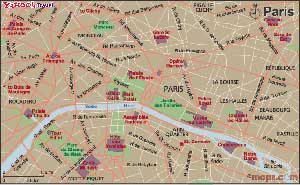 Anna, I never travel blind. Before I step onto the first plane to leave I have my journey “mapped out” in my head. I know how I will move through each stage of my journey. I know where I will stay each night and how I am going to return from the trip. This does not mean that I have the whole trip completely structured, but I do have a fairly fixed plan in my mind. Without having at least the basics of a plan, it is not possible for me to comfortably move through the various stages of the travel experience. Perhaps with greater experience I will be able to be more free flowing in my travels, but for now, the more planning and the more structure, the better I feel. Successful travel takes a lot of experience and with more experience I will soon be willing to let go.
Anna, I never travel blind. Before I step onto the first plane to leave I have my journey “mapped out” in my head. I know how I will move through each stage of my journey. I know where I will stay each night and how I am going to return from the trip. This does not mean that I have the whole trip completely structured, but I do have a fairly fixed plan in my mind. Without having at least the basics of a plan, it is not possible for me to comfortably move through the various stages of the travel experience. Perhaps with greater experience I will be able to be more free flowing in my travels, but for now, the more planning and the more structure, the better I feel. Successful travel takes a lot of experience and with more experience I will soon be willing to let go.
Once I finish the shake down phase and enter the adventure phase things tend to run smoothly. In this stage my adventure unfolds “page by page” as I chart my way through each section. The adventure phase is divided into two phases, the going up phase and the coming down phase. The going up phase is where I am still moving farther away from home; it is the uphill part of the trip. In terms of time I am moving deeper into the journey. The coming down phase, on the other hand, is where I have crossed the midpoint and I am moving closer in time towards home again. On the coming down phase, the more I feel my time coming to an end the more I feel home rushing at me. This part of the trip always creates irritation and if I am with a travel companion fighting can develop. Gaur and I always used to get into fights during this phase of the trip. On one trip we even broke apart and went separate ways. By understanding the psychological stages of a trip I have learned that if I am with a companion there are times when both of us need to be separate from each other. So I plan for this by arranging times when my companion and I have private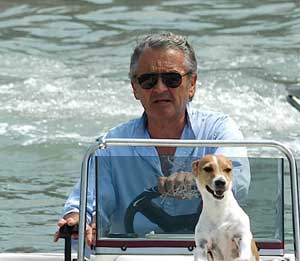 times. I do this without even mentioning it. I have learned to leave my travel companion to do things that they like while I go off to do what I like. And because I never like to travel blind I usually go off to get information about some upcoming part of the trip. In Paris, before I was to leave for Italy, I went the day before to explore the train station and to buy tickets. Most people would just show up at the station on the day of the travel, but I wanted to know as much as possible before the trip to Italy. For me this removes anxiety and even though it takes time I just include this time as part of my travel adventure. This is how I manage a trip, with a lot of planning.
times. I do this without even mentioning it. I have learned to leave my travel companion to do things that they like while I go off to do what I like. And because I never like to travel blind I usually go off to get information about some upcoming part of the trip. In Paris, before I was to leave for Italy, I went the day before to explore the train station and to buy tickets. Most people would just show up at the station on the day of the travel, but I wanted to know as much as possible before the trip to Italy. For me this removes anxiety and even though it takes time I just include this time as part of my travel adventure. This is how I manage a trip, with a lot of planning.
Half way through the coming down phase, the journey begins to end in my mind. Psychologically I now begin to return home. I dislike this psychological shift because it interferes with what is going on, after-all, I am still on the journey. This stage is similar to its counter part at the beginning of the journey. I have a lot of security issues. In the last few years, now that I have begun to travel, planes crashes and terrorism have a major impact on my psychology. These things play hard to this stage of my travel. Perhaps I will address the issue of travel death in a future installment. One can die anywhere and at anytime, but somehow travel dying stands out as a particularly dangerous way to die even though it is not. As I become a more experience traveller I know this stage can be delayed until the last day. I think it would be a good idea to give myself a few days of grace when I return home just in case there are any delays and to give myself time to recover from the jet lag. This would help minimize this stage of the travel experience.
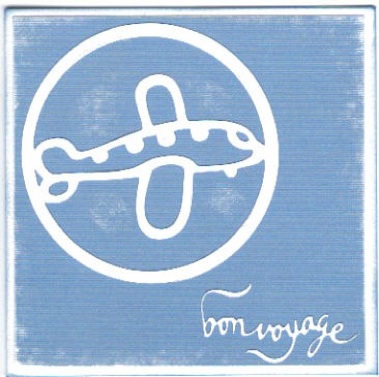 Anna, one of the great things about travel, and when I talk about travel I mean international travel, is the glimpse of the big picture that it affords. There is something remarkable about looking down at the world from 70,000 kms and then to arrive just a few hours later in a land where no one speaks your language or eats your food or wears your dress. I never ceased to be amazed by the range of human consciousness, how people who look just like me do not speak a word of my language or think in the way that I do. Travel gives me the opportunity to look down on my life from a great distance and to contemplate my existence. I enter a state of meditation when I travel. Suddenly all the little details of my life become less important. Travel expands the mind and gives me a fresh perspective on life. Oh, how I pity those who never leave the bounds of their town, city or country. But returning from the journey can be the hardest stage of all. You move from the big to the tiny. In an instant you are thrust into petty office disputes. You have just come from the salons of Paris or the pyramids of Egypt to the debates at the office water cooler. It takes about two weeks to come down to life on the ground. I look at my friends and relations and they look like strangers to me. They can not understand where I have just come from, but I have no choice other than to concede to their world. I am back on the ground now, but indeed I have much more than just my memories and photos, I have changed and my world is now just a bit bigger. I love to travel.
Anna, one of the great things about travel, and when I talk about travel I mean international travel, is the glimpse of the big picture that it affords. There is something remarkable about looking down at the world from 70,000 kms and then to arrive just a few hours later in a land where no one speaks your language or eats your food or wears your dress. I never ceased to be amazed by the range of human consciousness, how people who look just like me do not speak a word of my language or think in the way that I do. Travel gives me the opportunity to look down on my life from a great distance and to contemplate my existence. I enter a state of meditation when I travel. Suddenly all the little details of my life become less important. Travel expands the mind and gives me a fresh perspective on life. Oh, how I pity those who never leave the bounds of their town, city or country. But returning from the journey can be the hardest stage of all. You move from the big to the tiny. In an instant you are thrust into petty office disputes. You have just come from the salons of Paris or the pyramids of Egypt to the debates at the office water cooler. It takes about two weeks to come down to life on the ground. I look at my friends and relations and they look like strangers to me. They can not understand where I have just come from, but I have no choice other than to concede to their world. I am back on the ground now, but indeed I have much more than just my memories and photos, I have changed and my world is now just a bit bigger. I love to travel.
*Photograph by Malati Marvin

